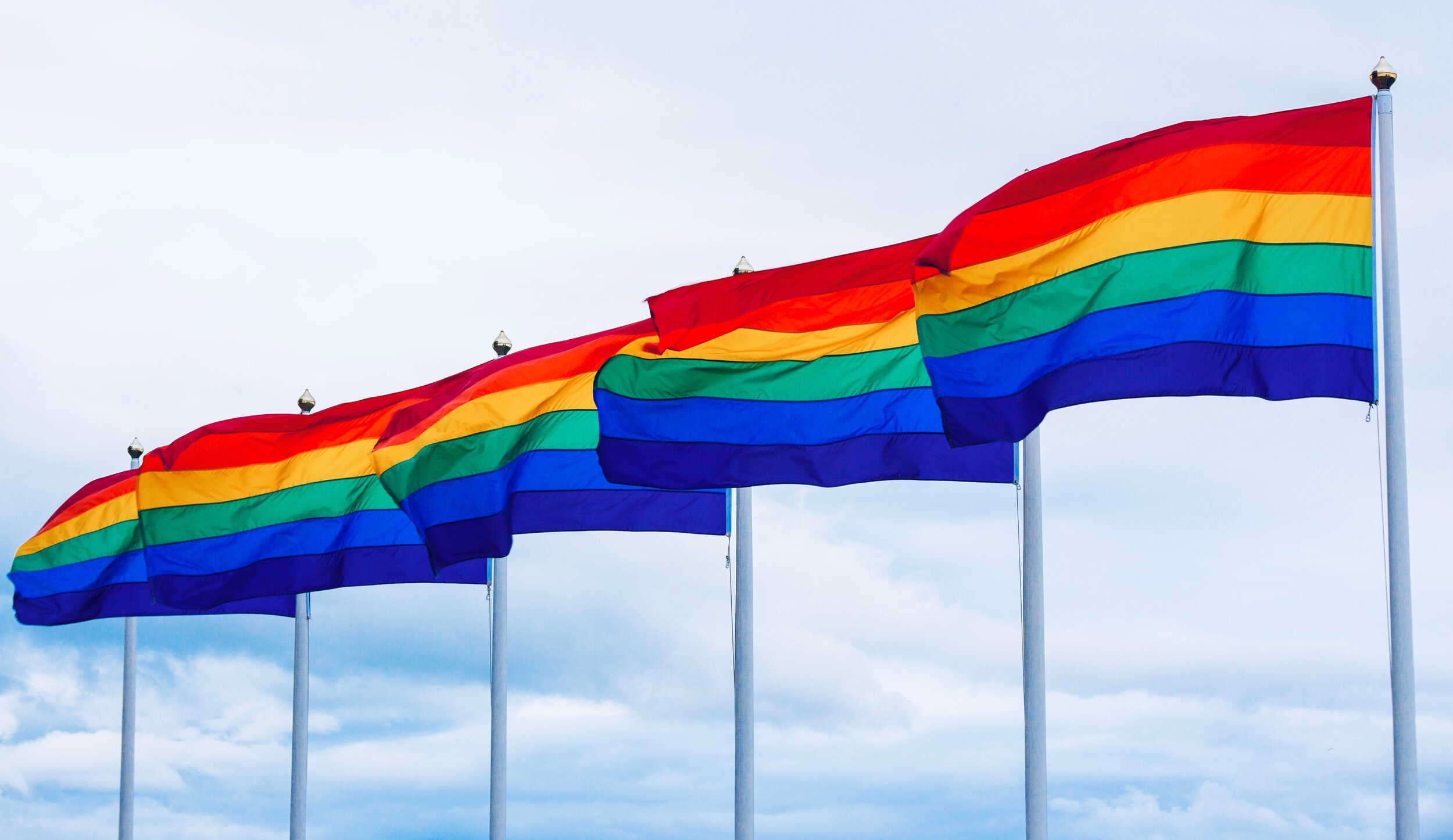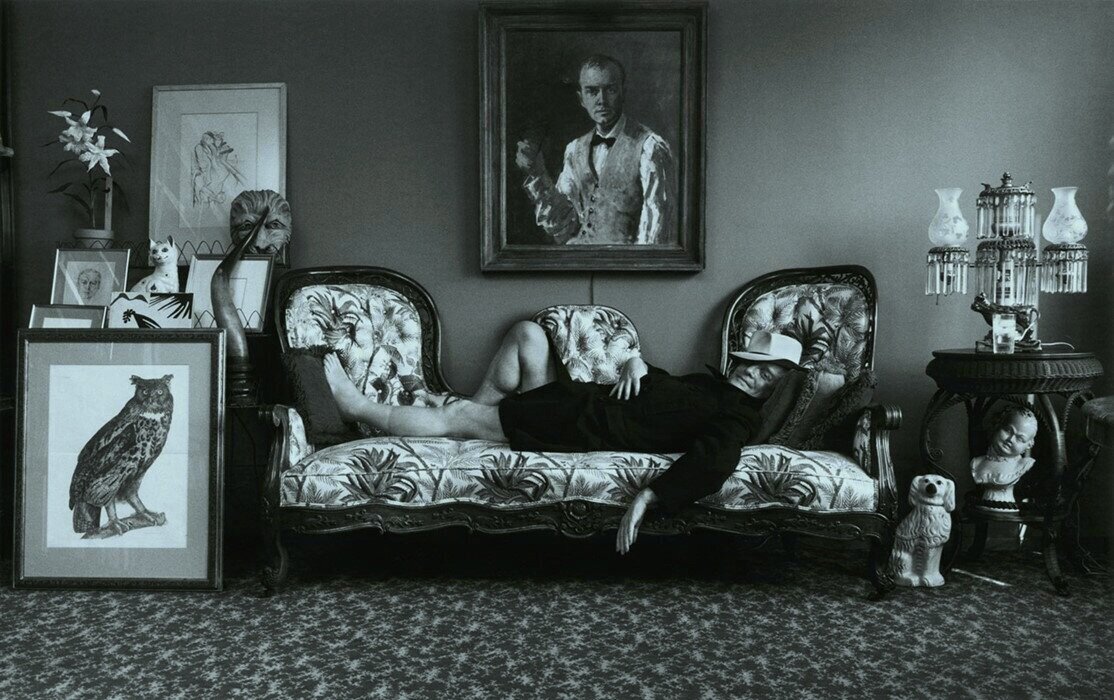7 LGBTQ Creative Thinkers who Helped Change the World

7 LGBTQ Creative Thinkers who Helped Change the World
Although the LGBTQ community reportedly only makes up about 5% of the overall population, their contribution to culture and innovation across varied disciplines of thinking is immense. When we think of the creative impact of the LGBTQ community, we often think of fashion, music, and theatre. Still, to truly understand the impact, we also need to look at engineering, computer science, artificial intelligence, and space travel.
In recent years, cultural shifts and changing social norms have resulted in a much safer and more accepting society for members of the LGBTQ community. However, the LGBTQ community continues to face discrimination. This discrimination helps to highlight the continued importance of Pride Month, a time to celebrate, uplift, and publicize the vast achievements made by its members.
To that end, we'd like to highlight a few achievements accomplished by titans of the LGBTQ community. The following seven creative thinkers have been carefully chosen based on their pioneering careers and personal experiences.
1. Leonardo da Vinci (1452 – 1519)
Leonardo da Vinci was a painter, scientist, and architect whose work achieved widespread fame during the Renaissance. Regarded as one of the greatest painters of all of history, da Vinci completed less than 25 major works. His painting of "The Mona Lisa" and "The Last Supper" continues to be regarded as some of the world's most famous paintings. Although da Vinci primarily rose to fame due to his achievements as a painter, he also gained notoriety for his eccentric ideas. Leonardo was known to have filled countless journals with innovative ideas about different subjects ranging from anatomy, weaponry, astronomy, and even paleontology. He was even known to design inventions that would have been scientifically impossible at the time, like a primitive helicopter.
Although Da Vinci was notorious for keeping his romantic life private, historians speculate that da Vinci was most likely gay. Historians first began to speculate about da Vinci's sexuality when they started to examine the accounts of acquaintances and friends of da Vinci. However, official court documents helped confirm da Vinci had been involved in sexual encounters with several different men. While homosexuality might have been illegal, da Vinci continued to express more than his ideas.
2. Sally Ride (1951 – 2012)
Sally Ride was an astronaut and physicist. At the age of 32, Ride became the first American woman in space in 1983, which made her only the third woman in space overall. Ride's extensive career with NASA resulted in her flying on the Orbiter Challenger twice. Once Ride retired from NASA in 1987, she joined Stanford University's Center for International Security and Arms Control. She'd later move to teach at the University of California, San Diego, where she also researched scientific concepts like nonlinear optics and Thomson scattering.
Although Ride was married to astronaut Steven Hawley during the late 1980s, it was revealed post-mortem that Ride was a Lesbian. Following Ride's death, Ride's personal obituary provided some insight into her true personal life. While Ride preferred to keep her personal life private, her obituary revealed that Ride had a partner of 27 years, her childhood friend, Tam O'Shaughnessy. Their relationship was confirmed by O'Shaughnessy as well as by Ride's sister. The revelation of Sally Ride's relationship with Tam O'Shaughnessy makes Sally Ride the first Lesbian astronaut.
Check Out Our Best Selling Journals
The Original Creative Thinking Guided Journal
The All-Ages Creative Thinking Guided Journal
3. Alan Turing (1912 – 1954)
Alan Turing was a mathematician, computer scientist, and philosopher. In 1938, Turing obtained his Ph.D. from the Department of Mathematics at Princeton University. A true creative thinker of his time, Turing helped apply mathematical concepts to the development of computer science. He proposed creating algorithms that directly aided in the development of a model of a general-purpose computer. While his work helped develop computer science, he is also considered the father of artificial intelligence, which would not have been possible without his mathematical findings.
Although Turing's creativity led to revolutionary developments, Turing, unfortunately, experienced several misfortunes because of his identity. In 1952, Turing was found guilty and prosecuted for engaging in homosexual acts. Turing chose chemical castration to avoid prison, which many believe played a part in his death of accidental poisoning. Following a social media campaign in 2009, the British prime minister publicly apologized to Turing, with a posthumous pardon granted in 2013.
4. Wendy Carlos (1939 – Present)
Wendy Carlos is an American musician and composer whose music helped pave the way for new wave and EDM genres. Carlos assisted Robert Moog in the development of the Moog Synthesizer, the first commercially available keyboard instrument. Carlos's electronic music was so innovative that she helped compose the scores for two Stanley Kubrick films, A Clockwork Orange and The Shining, and a Disney film, Tron.
Carlos's achievements also exist beyond music and technology. For most of her adult life, Carlos has been considered a public activist as she helped raise awareness about transgender issues. When prejudice against the LGBTQ community was common, Carlos raised awareness of transgender issues by publicly coming out. Carlos chose to disclose that she had been living as a woman since 1968 and that it was only in 1972 that she had been able to undergo complete sex reassignment surgery. She was truly a pioneer in music, technology, and social issues.
5. Lynn Conway (1938 – Present)
Lynn Conway is a computer scientist, electrical engineer, and transgender activist. Conway is personally responsible for several key innovations that helped to revolutionize our computer systems. Many of her findings and advancements are now considered the standard, as she helped modernize many technological systems. Perhaps Conway's most widely recognized achievement is her contribution to computer chip design and production. Her findings helped automate the process for chip production and helped to inspire a series of significant tech start-ups throughout the 1980s and 1990s.
Having experienced gender dysphoria for much of her childhood, Conway initially wanted to undergo gender transition while working at IBM in 1968. In turn, IBM fired Conway after she revealed her transition plans. Conway still completed her transition in 1968. After undoing her transition, Conway took on a new name and worked in "stealth-mode" for several years. Although many of her colleagues believed her to be a cisgender woman, nearing her retirement, Conway began to come out as a transgender woman. She helped raise awareness about the issues she faced and helped expand the rights of transgender people in the United States.
6. Tim Cook (1960 – Present)
Tim Cook is an entrepreneur and business executive who is currently the chief executive officer of Apple Inc. Before becoming Apple Inc.'s chief executive officer, Cook worked as the company's chief operating officer under Steve Jobs. Cook has spent much of his time working at Apple advocating for more cybersecurity, American manufacturing, and sustainable environmental preservation. Since Cook took Apple over in 2011, he has nearly doubled revenue, helping the company draw its most considerable profits yet. Cook has also worked to increase the baseline value of Apple, taking the company's value as high as $1.9 trillion.
However, Cook's most significant contribution to society may have occurred in 2014, when he publicly came out as gay. Ultimately, Cook became the first chief executive of a Fortune 500 company to be gay publicly. His coming out also resulted in a string of other chief executive officers coming out. Cook continues to help LGBTQ youth dealing with homelessness and suicide improve their situations.
7. Lana Wachowski (1965 – Present) and Lilly Wachowski (1967 – Present)
Lana Wachowski and Lilly Wachowski are screenwriters, producers, and film and television directors. Collectively known as the Wachowski Sisters, the sisters have worked as creative partners for most, if not all, of their careers. The Wachowski Sisters made their public debut in 1996 with the film Bound. However, in 1999, their second film helped the Wachowski Sisters achieve international recognition. The Matrix won the duo many directing awards and spawned two sequels resulting in one of Hollywood's most successful film franchises. Following their work on The Matrix trilogy, the Wachowski Sisters also worked and produced V for Vendetta, Speed Racer, and Netflix's Sense8.
The Wachowski Sisters maintained very private personal lives, even being dubbed by the media as 'the Reclusive sisters.' However, following the completion of their transition, they began to be much more open about their journeys and experiences. Lana even once expressed that if she can inspire even one transgender person, perhaps the sacrifice of the privacy of personal life may have value. The Wachowski Sisters have gone on to win several awards for their activism and for helping to raise awareness on transgender issues.





